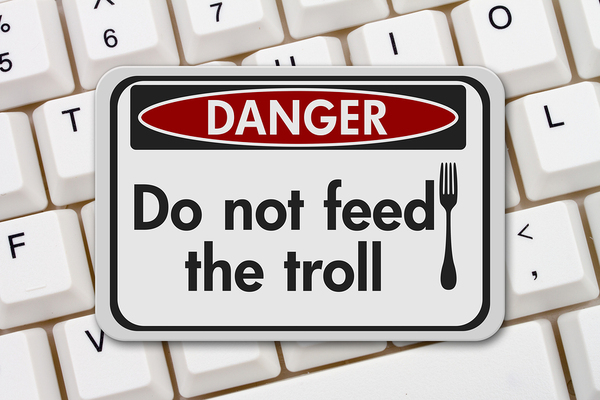When your children are young, they may be fascinated or frightened by fairy tales involving trolls. In folklore, these unpleasant creatures may pop out from under a bridge or other dark place, and they are often vanquished by the story’s hero. As your children get older, they may come in contact with another type of troll that’s not so easily dispatched–the internet troll. Take a look at what you need to know about online trolling and how your teen can handle trolls when they meet them online.
What Is Trolling?

Online trolling can take a variety of forms. Trolling can mean changing the topic of discussion, particularly with the intention of taking the discussion in a direction that’s negative or hurtful to the people participating in the conversation. It can also mean making inflammatory or bullying comments. People who engage in this kind of online behavior are called trolls.
Much like the creatures from folklore, internet trolls can often seem to come out of nowhere and seem intent on causing mayhem for their own gain or enjoyment. They can also be difficult to get rid of. Even platforms with strict rules and moderation can find it difficult to get rid of a determined troll–after being banned, they may return again and again with new accounts made specifically for the purpose of trolling.
Why Do Trolls Do What They Do?
Often, a cyberbully might be someone that your teen knows from real life or from extended online interactions, who has developed a grudge against them for whatever reason and is targeting them specifically. This is not necessarily the case with trolls. Internet trolls are often total strangers to the people that they target. In fact, some make it a point to troll as many people as they can at one time, rather than zeroing in on one specific target.
Rather than acting out because of a specific grievance, some trolls are just people who are bored and find these activities entertaining. They may also feel marginalized, ignored, or angry in their real lives, and trolling is a way for them to seek out attention and take out their feelings on anyone who happens to be available. Because trolling can be done anonymously and usually has few repercussions beyond possibly being suspended or banned from a website, it can seem like a safe way to act out negative emotions.
What Should Your Teen Do About Trolls?

Spend any time on a website that attracts trolls, and you’ll eventually see the phrase “don’t feed the trolls.” In other words, don’t give them any kind of attention–just ignore them. As difficult as it may be sometimes, this is usually the most effective way to deal with trolls. Trolling behavior is attention-seeking behavior. A troll who isn’t receiving attention will most likely disengage on their own.
However, ignoring a troll needs to be a collective behavior. If your teen ignores the troll, but other users in the same internet discussion do not, the troll will continue to act out in ways that may affect your teen. Teens should be aware of the procedure for reporting trolls to the admins of platforms that they use, and the procedure for blocking trolls on those platforms. Trolling comments can be hurtful, even if your teen knows that the troll is simply seeking attention. Your teen has the right to protect themselves from these hurtful comments by reporting the troll so that they can be removed or blocking them from further interaction.
Make sure that you talk to your teen about trolling and how to handle it if they experience it online. You can also monitor your child’s online activity, so you know if they’re dealing with harmful trolls. Parental monitoring software can help with this. To find out how parental monitoring software can help, get our free trial.





